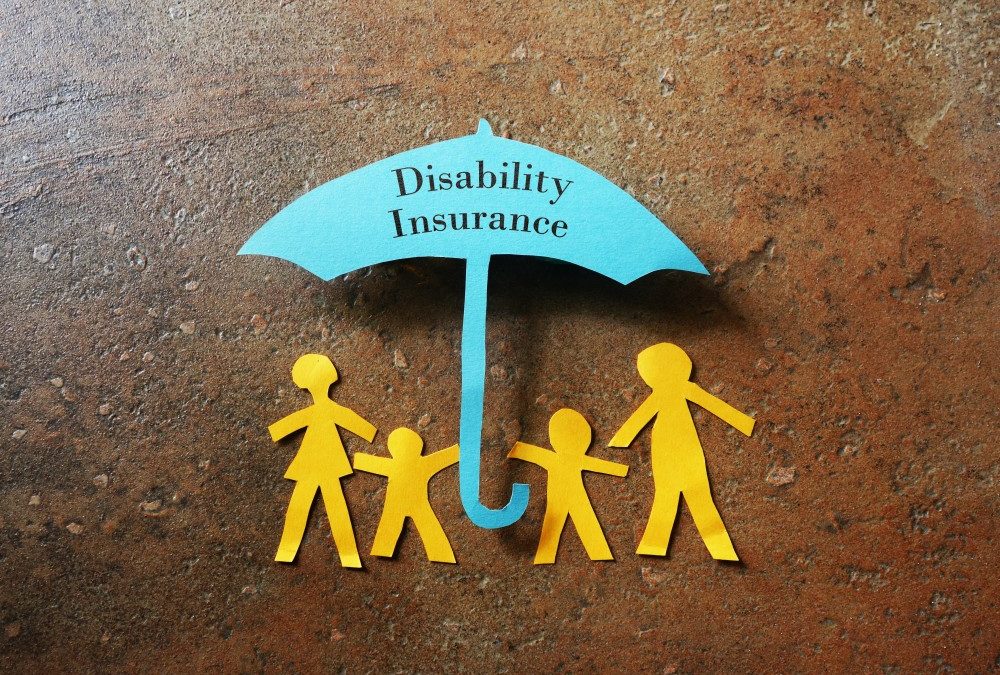What is disability insurance and should you invest in it?
Short and long-term disability insurance is coverage either provided by your employer or purchased by someone to provide financial protection if they are unable to work due to illness or injury. If you are injured at work and unable to continue working, then you may be eligible for workers’ compensation benefits. Similarly, if you become totally disabled from employment due to a non-work related illness or accident, then you may be eligible for Social Security benefits.
In this article, we will discuss:
- Why you need private disability insurance,
- The difference between short-term and long-term disability insurance, and
- Why Social Security Disability Insurance is probably not enough if you become disabled.
Short and Long-term Disability Insurance
Disability insurance pays you a monthly benefit if you become disabled and unable to continue employment.
The types of disability insurance that are available include both short-term and long-term disability insurance, and you should consider buying both.
Short-term disability insurance will usually pay benefits for three to six months. If you cannot return to work after your short-term disability benefits have expired, then you will need long-term disability insurance if you are still disabled.
Short-term disability insurance is only intended to cover you for a short period of time until you are able to return to work. Short-term disability insurance may also cover maternity leave, and typically replaces 60-70% of your salary while you are out of work.
Long-term disability insurance will begin to pay benefits after your short-term disability benefits have run. The cost of this policy is determined in part by the length of the benefits period, which could be one year or up to your retirement. Although long-term disability insurance pays benefits for a longer period, it often pays less – usually 40-60% of your salary.
According to the International Foundation of Employee Benefit Plans, around 78% of employers offer short-term benefits to their employees, and 63% offer long-term benefits, yet only 38% of employees sign up for short-term disability insurance and only 33% sign up for long-term disability insurance.
Why Do You Need Disability Insurance?
Why do you need any type of insurance?
If the unthinkable happens, and you are injured badly enough or become ill and can no longer work, disability insurance will help you pay for your most necessary expenses and not lose everything – disability is a leading cause of bankruptcy for Americans.
Social Security Disability Insurance (SSDI) or workers’ compensation insurance may offer some relief, but it often does not provide enough income to pay for everything you need. In many cases, short and long-term disability benefits are paid in addition to what SSDI and workers’ compensation pays.
Who should purchase disability insurance?
- Anyone who works in a profession where there is a high likelihood of injury – construction jobs, factory work, and many other professions have high injury rates, and workers’ compensation insurance may not exist or cover your expenses after an injury, and;
- Anyone whose family relies on their income to pay the majority of the bills of the household.
- Anyone who could not support themselves if they were to be out of work for an extended period of time.
Although some occupations are more prone to employee injury than others, everyone is subject to unexpected and sometimes catastrophic injuries – a slip on an icy sidewalk, an auto accident, or a fall from a ladder, etc.
Another thing to consider is that disability insurance benefits are not limited to on-the-job injuries like workers’ compensation insurance. If you fall from a ladder at home and suffer a back injury that prevents you from working, workers’ compensation insurance is not going to pay you benefits – but your disability insurance will.
Why Not Just Rely on Social Security Disability?
You might be entitled to Social Security Disability Insurance but qualifying and receiving these benefits from the Social Security Administration is not easy. If you do qualify for SSDI benefits, it is not likely to be enough to cover your monthly expenses. Your monthly social security disability payment is based on your taxable income over a period of time. However, the average disability payment ranges from $800.00 – $1,500.00 a month.
If you purchase a Long-term disability insurance plan that does not have an offset for SSDI then the combination of your disability insurance benefits and Social Security Disability Insurance benefits may provide a more reasonable cushion to help pay your bills.
That is assuming that you can qualify for SSDI.
To qualify for SSDI benefits, your health condition must be severe enough to keep you out of work for at least 12 months. Moreover, SSDI will not begin paying benefits immediately – it could take as long as two years before you see a check from the SSA. Hence, anyone applying for SSDI benefits needs money set aside while they are waiting for approval from the Social Security Administration. Short-term and Long-term disability insurance provides this protection.
How to Get Short-term or Long-term Disability Insurance
If your employer offers disability insurance, you should sign up through your job – it will most likely cost you significantly less than a privately purchased policy. But, if your employer does not offer the option, you can get short-term or long-term disability insurance through most insurance companies.
Questions About Social Security Disability Benefits?
If you have suffered an injury that prevents you from returning to work, Attorney Nick Callas may be able to help you to qualify for benefits through a workers’ compensation claim or Social Security disability benefits.
If you have any questions about whether your medical condition qualifies for social security disability and what type of documentation you will need, call the Law Office of Nicholas G. Callas, P.A. at 803-369-3968 or contact us through our website for a free consultation.
Ready To Speak With An Attorney?
Let’s discuss the details of your case and see if we can help.

